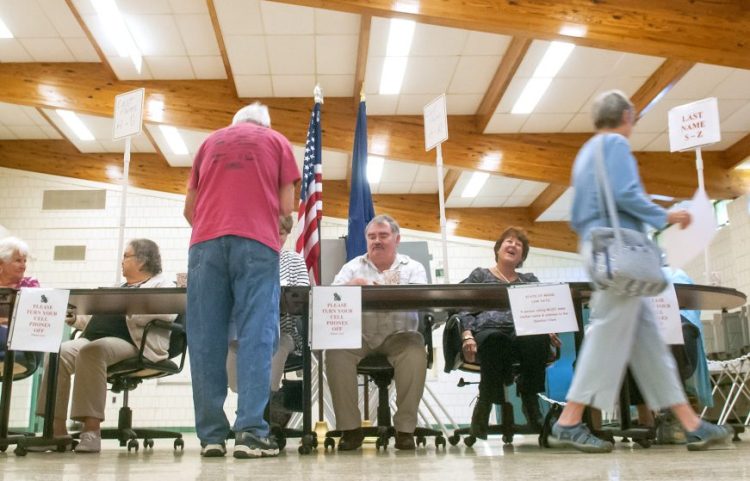Maine Secretary of State Matthew Dunlap calls it a very straightforward problem, but please forgive us if we’re still confused.
Dunlap may have the legal right to withhold voter information under his control when he thinks privacy is at risk, but it’s hardly straightforward or transparent. It would be much better if the state had one rule for everyone and stuck with it.
The latest controversy started last month when election officials in all 50 states were served with a request for voter data from the Presidential Advisory Commission on Election Integrity, a panel concocted to support President Trump’s unfounded allegations that voter fraud cost him the popular vote in the last election.
Dunlap, who is a member of the commission despite strongly believing that all the elections he has anything to do with are well-run and produce trustworthy results, initially said he would comply in part with the request, turning over those records that are not excluded by law from public access.
Then, after consulting with the Maine Attorney General’s Office, Dunlap said he would not release any data, because the request letter from the commission said that it planned to publish what it collects in a public database.
The “straightforward” problem took another twist with the report that Dunlap’s office regularly shares the information it denied to the commission, not only with the courts and other government agencies, but also, on a fee basis, with political parties, candidates for office, lobbyists and people organized to support or defeat ballot initiatives.
Dunlap says state law gives him the authority to refuse requests for voter information, as he has done so at least once in the past.
Sorry, but that doesn’t look straightforward to us. It looks needlessly complex. For one thing, it’s not fair. Political parties and referendum campaigns are private associations that don’t deserve any special privileges when it comes to public information. Why should the hired hands of a casino developer in Las Vegas have more information about someone in Maine than his next-door neighbor? If an ordinary citizen can’t walk into a government office and review the data without stating a reason, why should a political operative get it?
And it’s ripe for abuse. There may be no indication that Dunlap or his predecessors have used their discretionary powers for political advantage, but what’s to stop it from happening in the future?
If Dunlap can refuse to release information to the Presidential Advisory Commission, the next secretary could decide that the Democratic Party is up to no good, or that the “Vote No on the Transportation Bond” campaign can’t be trusted. The potential is too great for an official willing to hide political bias behind a stated aim of protecting privacy.
A better – and more “straightforward” – approach would be to determine and protect the data that are too sensitive to be made public (such as birth dates, Social Security numbers, party registration or voting history) not just from some people, but from everyone. And anything that’s not excluded by law from release to the public should be public – all the time and for anyone who asks for it, regardless of the reason.
That would be a much fairer way to balance the public’s right to know with an individual’s privacy, while not giving certain political interests an unfair advantage.
Trump’s commission might not find much voter fraud, but it may have unintentionally identified a real problem here in Maine that needs to be straightened out.
Send questions/comments to the editors.


